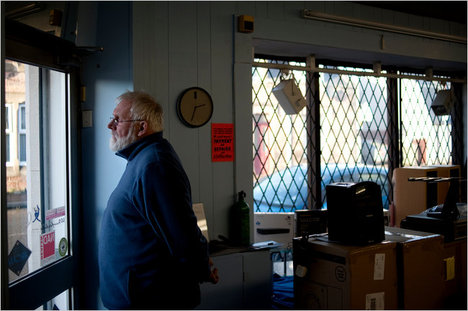(p. 11) Paxton was very lucky in his timing, for just at the moment of the Great Exhibition glass suddenly became available in a way it never had before. Glass had always been a tricky material. It was not particularly easy to make, and really hard to make well, which is why for so much of its history it was a luxury Item. Happily, two recent technological breakthroughs had changed that. First, the French invented plate glass–so called because the molten glass was spread across tables known as plates. This allowed for the first time the creation of really large panes of glass, which made shop windows possible. Plate glass, however, had to be cooled for ten days after being rolled out, which meant that each table was unproductively occupied most of the time, and then each sheet required a lot of grinding and polishing. This naturally made it expensive. In 1838, a cheaper refinement was developed–sheet glass. This had most of the virtues of plate glass, but ¡t cooled faster and needed less polishing, and so could be made much more cheaply. Suddenly glass of a good size could be produced economically In limitless volumes.
Allied with this was the timely abolition of two long-standing taxes: the window tax and glass tax (which, strictly speaking, was an excise duty). The window tax dated from 1696 and was sufficiently punishing that (p. 12) people really did avoid putting windows in buildings where they could. The bricked-up window openings that are such a feature of man period
buildings in Britain today were once usually painted to look like windows. (It Is sometimes rather a shame that they aren’t still.) The tax, sorely resented as “a tax on air and light,” meant that many servants and others of constrained means were condemned to live In airless rooms.
Source:
Bryson, Bill. At Home: A Short History of Private Life. New York: Doubleday, 2010.






